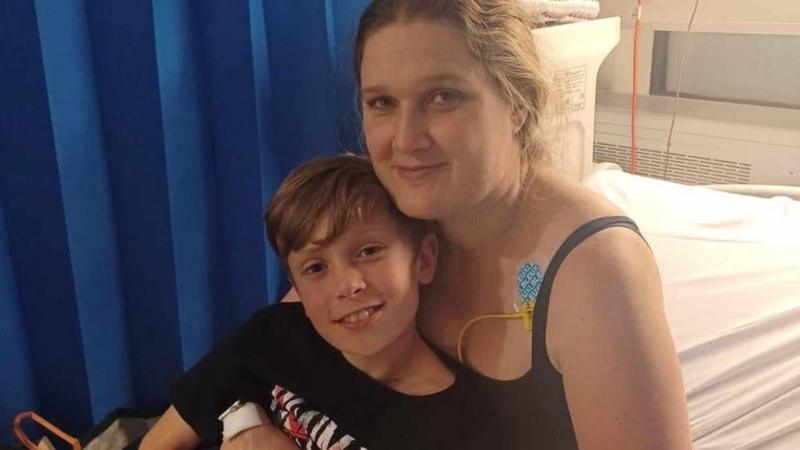Heart Attacks of Two Sisters Lead to Calls for Increased Awareness of Potentially Fatal Condition
10 March 2024
Updated 2 hours ago
Image source: Family photo
Two sisters who had heart attacks just days apart have said more should be done to raise awareness of a condition that can be fatal.
Rebecca Lewis, 48, had a spontaneous coronary artery dissection (SCAD), when a tear appears in the wall of a coronary artery.
Although not conclusive, it is likely that her sister Angharad experienced the same thing three days later.
SCAD is a rare condition that cannot currently be predicted or prevented. The majority of cases affect women in their 40s or 50s or those who have recently had a baby.
Rebecca, a teacher from Cardiff, was marking work in her classroom last November when she felt huge pressure on her chest. The school’s quick-thinking head teacher took Rebecca to the University Hospital of Wales in Cardiff, where she was told she had had a heart attack. An angiogram a few days later showed that it had been caused by a SCAD.
What is SCAD?
A SCAD happens when the inner layers of a coronary artery tear away from the outer layer, restricting blood flow. In some cases this can lead to a heart attack or cardiac arrest. Symptoms can include chest pain, tightness or pain in the arms, neck, jaw, back, or stomach; feeling dizzy or lightheaded; feeling tired or out of breath; nausea, and feeling sweaty or clammy.

Image source: Angharad Lewis
Rebecca said she was lucky that the consultant who treated her had previously worked at Glenfield Hospital in Leicester, which is a leading center for research into SCAD. She emphasized the importance of recognizing SCAD on angiograms to enable accurate diagnosis and appropriate treatment.
The morning after visiting her in the hospital, Rebecca’s sister Angharad also had a heart attack. An angiogram suggested she too had suffered a SCAD. Angharad was treated at a different hospital, but Rebecca advocated strongly for Angharad to be checked for a SCAD, which led to the correct diagnosis.
Rebecca and Angharad, along with their family, have been profoundly affected by the experience. They highlight the need to raise awareness about SCAD and the potential for misdiagnosis or its entirely missed recognition.
In the search for answers, 2,000 patients are currently assisting research at Glenfield Hospital. Professor David Adlam, who leads the research, emphasized the importance of prompt and appropriate clinical suspicion and encouraged healthcare professionals to consider SCAD when evaluating patients experiencing relevant symptoms. SCAD requires different management than conventional heart attacks, and awareness among healthcare professionals is vital to ensure correct diagnosis and effective treatment.

Image source: Angharad and Rebecca Lewis
Beat SCAD charity currently funds the research into SCAD, while the Scottish government is running a pilot project. Professor Adlam hopes to collaborate with the Welsh government for similar support and resources to better care for SCAD patients. Calls continue to grow for increased awareness of SCAD among the medical community and the general public.
Both sisters remain on their journey to recovery and are grateful for the support from friends and family, recognizing the impact their harrowing experience has had on their entire lives.
Rebecca concluded, “It caused a lot of distress when it happened. It was the last thing I was thinking at 48 years of age that I’d be having a heart attack.”
Research is ongoing, and the search for answers into SCAD continues – ultimately aiming to prevent further misdiagnoses or missed cases of this potentially fatal condition.
Disclaimer: This article is based on aggregated information from various sources and is for informational purposes only. It should not be considered as medical advice. Please consult with a qualified healthcare professional for more information on SCAD and related topics.
For media inquiries, please contact:
Editor’s Name
Email: [email protected]
Phone: xxx-xxx-xxxx


